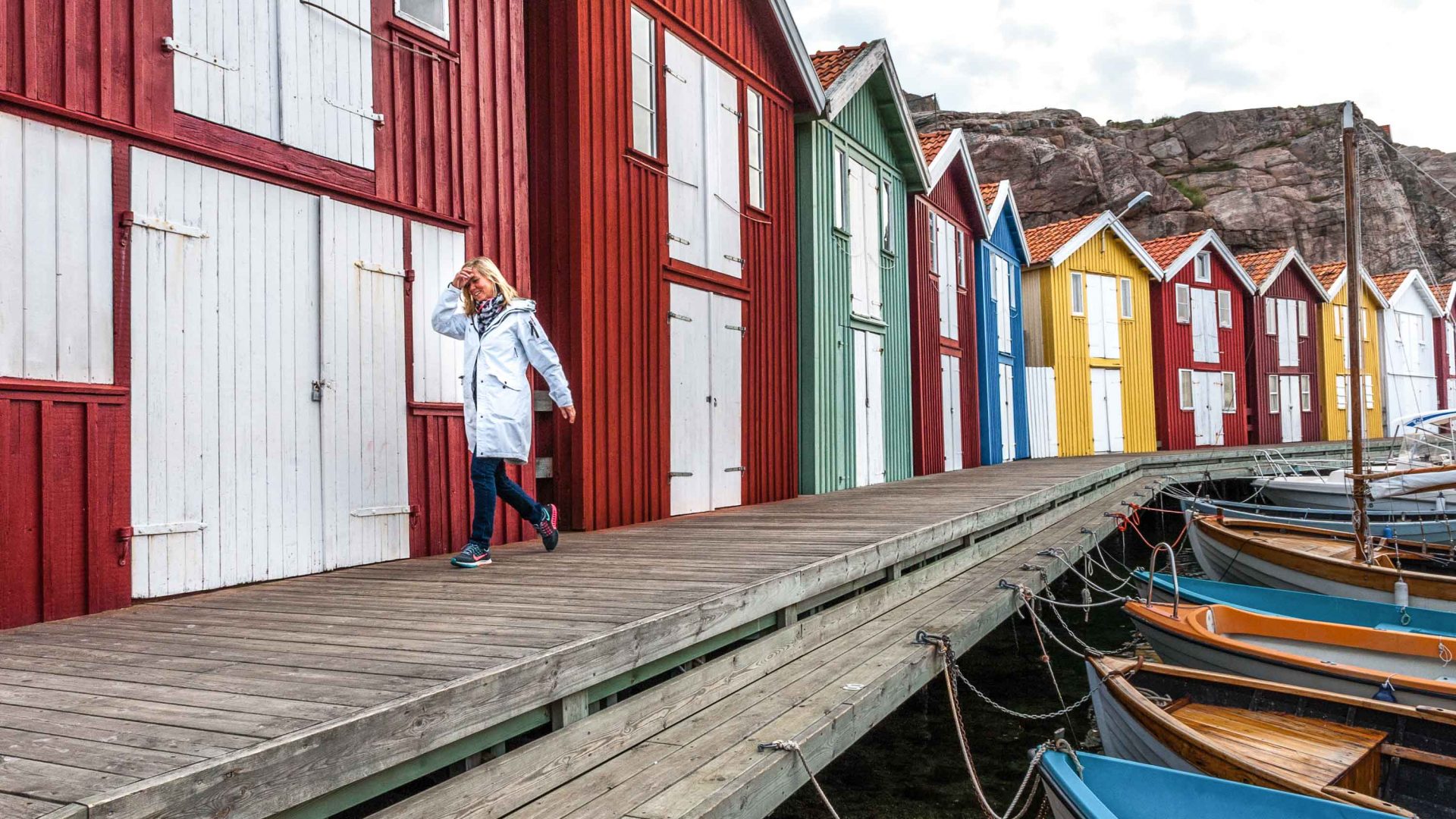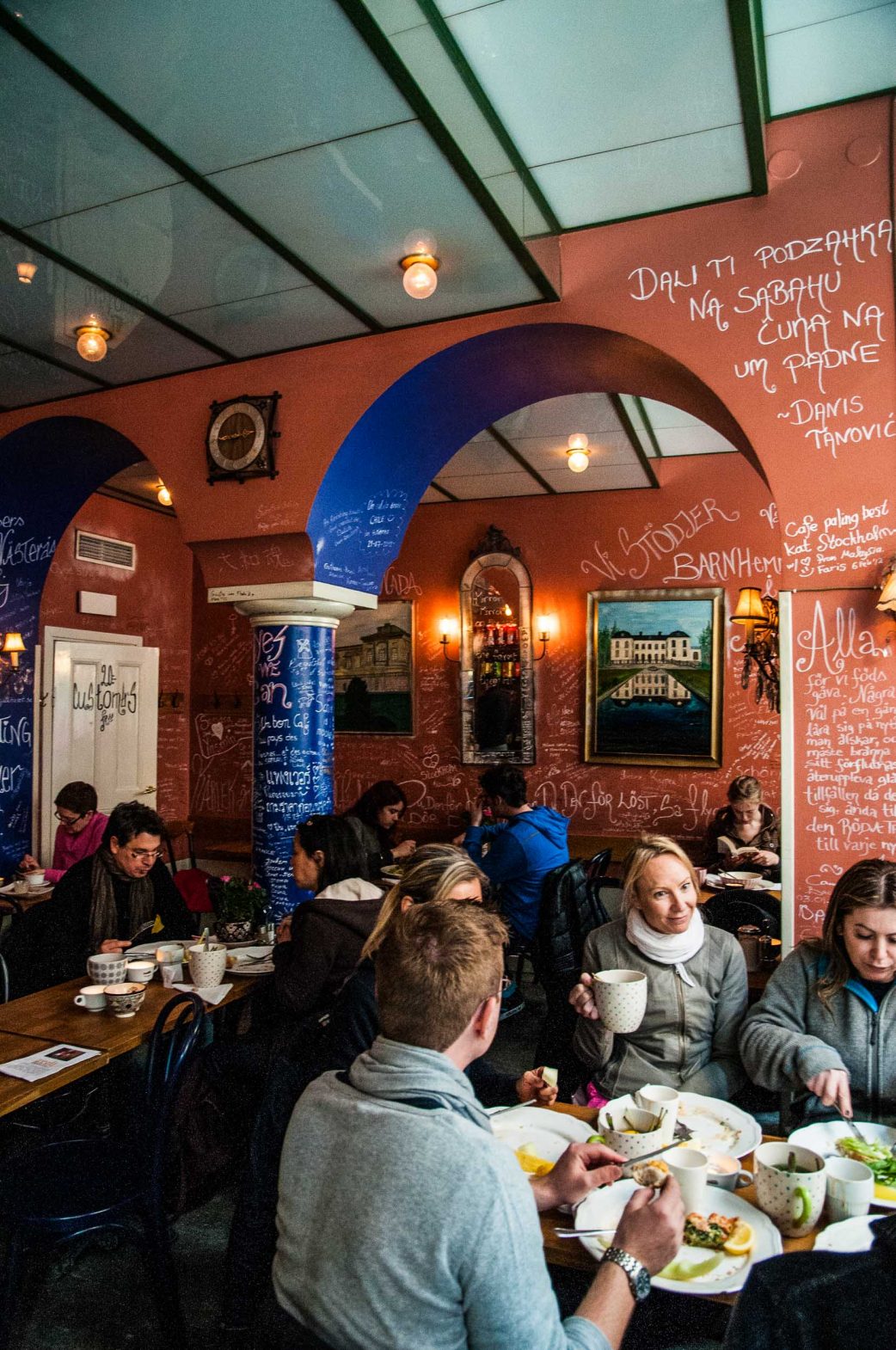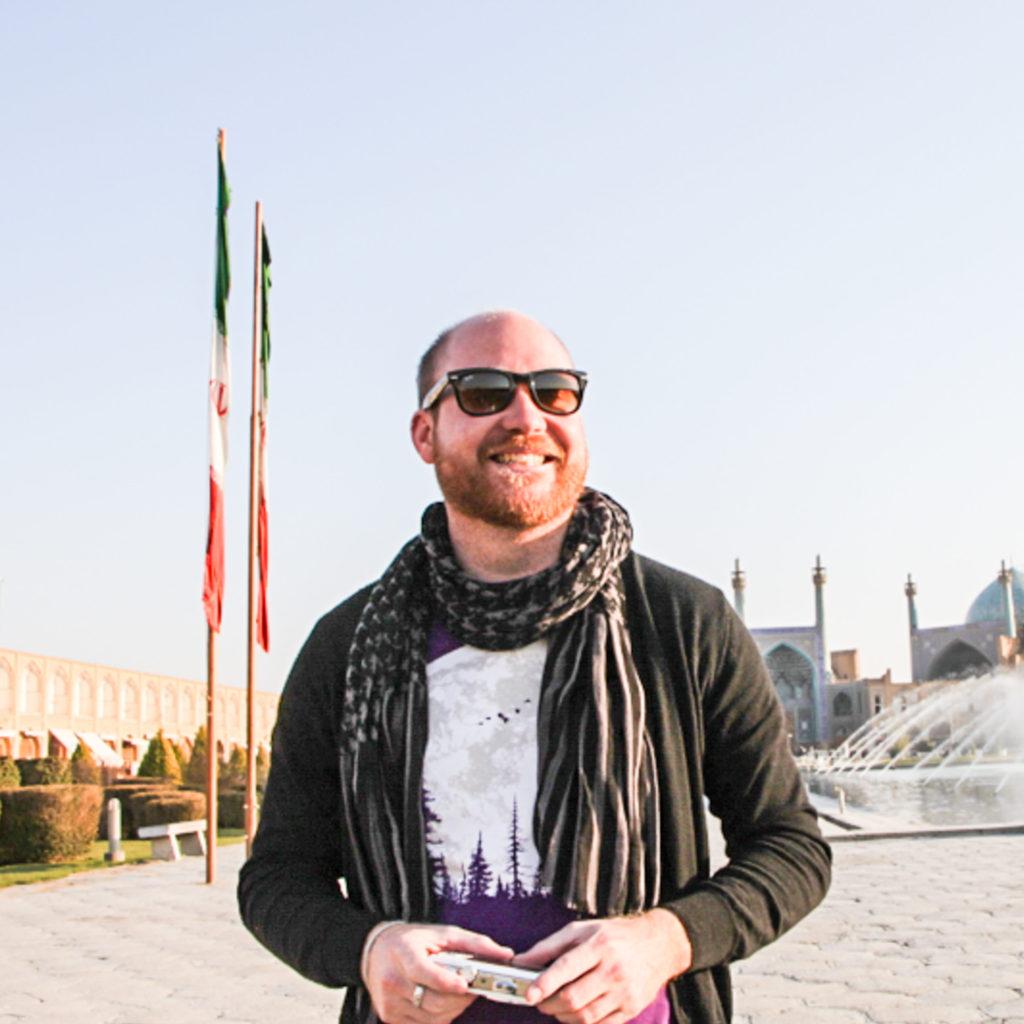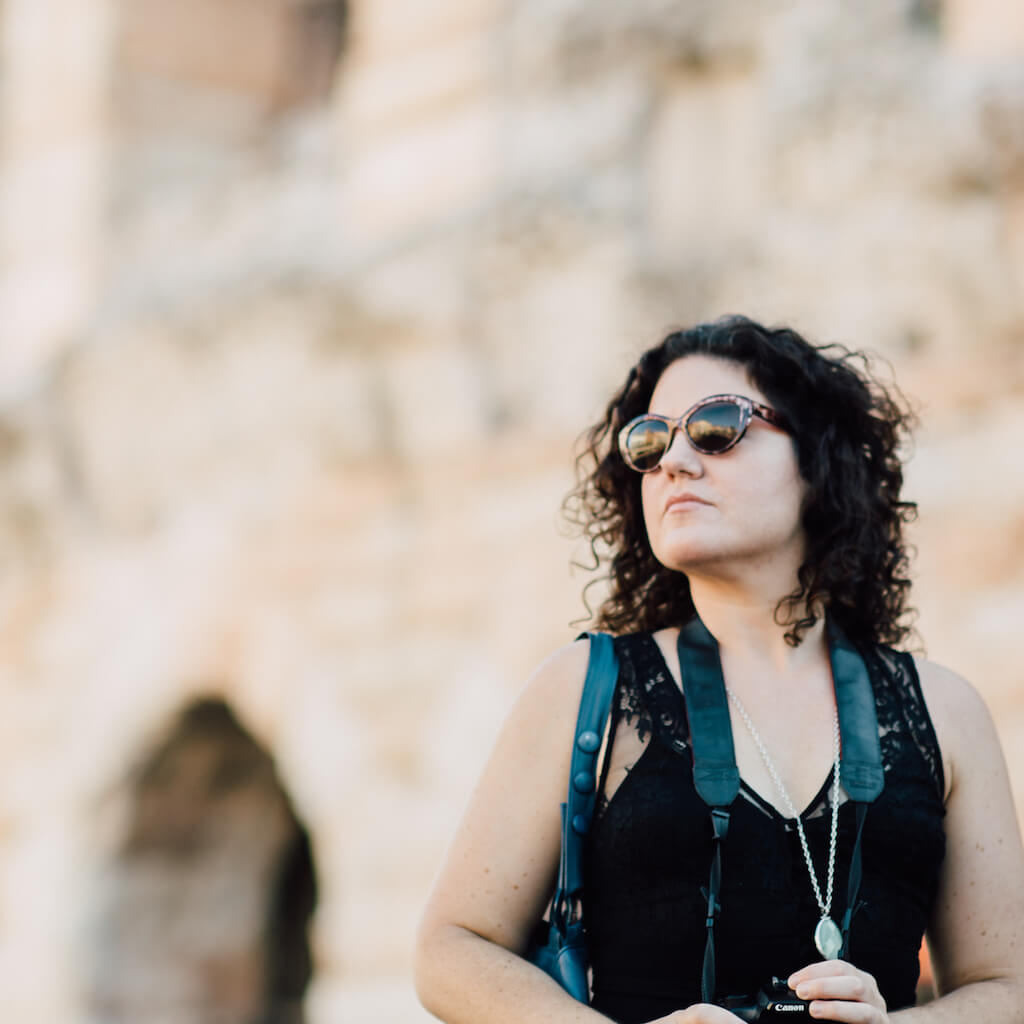
Is less more when it comes to contentment? Stockholm-based Lola Akinmade Åkerström compares the Swedish art of restraint—or lagom—to her more chaotic Nigerian upbringing.

Is less more when it comes to contentment? Stockholm-based Lola Akinmade Åkerström compares the Swedish art of restraint—or lagom—to her more chaotic Nigerian upbringing.
The first time I heard that sucking sound—a swift and sharp intake of air—I was chatting away on an icy lake during the darkest throes of winter in Swedish Lapland. That unfamiliar noise came from Mikael, a Swedish acquaintance-turned-extended-family-member.
He was taking me racing in a beat-up Ford across a frozen lake in Norrbotten, in Sweden’s far north; this impromptu rally had attracted equally banged-up Volvos, racing each other along makeshift tracks. As I vented my fears (and said my last prayers), Mikael offered no nods of acknowledgement or “Yup!” just that curious sucking sound.
And even when his foot hit the accelerator, taking us to 100 kilometers per hour across the lake, my screams of terror were met with his low chuckles of excitement. And after the friendly racing was over, no piercing screams of victory from anyone. Just a fist bump into the air here, a pat on the shoulder there—emotions seemed controlled even out in the middle of the woods.

But this wasn’t the first time I’d encountered this unspoken code of restraint called lagom. I’d understood this concept of ‘just the right amount’, when dining with accomplished musicians who didn’t flaunt their prowess. I noticed it when passengers quietly waited for delayed luggage and didn’t stress each other with unnecessary banter. I was reminded of it again when a local suggested I didn’t explain to my Swedish teacher why I was late to class, but to simply apologize. Why share extra, unrequested, information?

That was when I began to realize I was dealing with a culture which proactively battles excess. Where less is more; in fact, lagom är bäst means ‘enough is as good as a feast’. It’s an ethos which curbs waste and avoids extraneous words and unnecessary gestures. One where stating the obvious was a time-wasting activity. And where ‘just enough’ was better than perfection. Like Goldilocks, ‘not too hot, not too cold, but just right’.
In short, this is a philosophy that’s the cultural opposite of my own roots, one that’s deeply entrenched in Yoruba culture. I was born and raised in Nigeria before moving to the US at age 15 to start college. In Nigeria, blessings are prayed for in gargantuan quantities. We even have additional gestures, for example, pursing our lips towards an object that’s beyond reach. Where lagom tries to stave off superfluity, my own culture gladly receives it—with wide, open arms. In Nigeria, every day is lived as vivaciously as possible, with loud laughter, good food, and a festive spirit.
RELATED: Iceland: Far from the maddening crowds
But now, lagom has emerged as the lifestyle choice to push us towards contentment and happiness, a way of learning to live with less and appreciating what we already have. The 2017 World Happiness Report ranked Sweden the 10th happiest country in the world. Although not too long ago, in 2011, Nigeria was also crowned the happiest place on earth. While drastically different, each one has carved its own path towards happiness. For Swedes, it is through contentment and safety; and for Nigerians, it is through joy and accomplishment.
Perhaps stress is the key difference between the two mindsets; in fact, observing how a culture deals with anxiety is the quickest way to gain insight into its standards of living. Living in stressful situations on a daily basis, the norm for many Nigerians, is a stark reminder of one’s mortality, and so perhaps we continuously celebrate.
I realized that describing lagom as ‘everything in moderation’ was insufficient; its true meaning lies closer to the word ‘optimal’.
On the other hand, some societies, like Sweden, prioritize serenity so they can be productive. And this breeds a certain harmonious environment where the sources of stress, such as lack of food, shelter, healthcare and finances, are adequately taken care of, allowing people to focus on being productive. These approaches often reduce and pare down those tangible and intangible extras to relieve stress and create a balance between ‘not too much’ and ‘not too little’.

This approach illustrates the lagom mindset. It stipulates that if we fully take care of our basic needs first, we invite contentment into our lives—regardless of what we want in life. Often described as ‘just right’, it wasn’t until I married an air-sucking Swede from the north, moved to Sweden in 2009, and lived a lagom life on a daily basis, that I came closer to defining it. And I realized that describing it as ‘everything in moderation’ was insufficient; its true meaning lies closer to the word ‘optimal’.
RELATED: A digital nomad on the meaning of ‘home’
Regularly cited as an untranslatable word, lagom manifests itself differently and changes meaning in different contexts—and that makes it challenging to define. It can mean ‘appropriate behaviour’ in society and ‘moderation’ in nourishment, to ‘less is more’ in design and ‘mindfulness’ in wellbeing. Lagom implies optimal decision-making that’s best for you, the individual, the group, or a particular situation.
I certainly consider myself a member of two exuberant cultures—Nigerian and American. Initially, lagom felt ‘foreign’ and even rather blasphemous, but over time, I’ve come to appreciate the cool restraint and self-confidence it exudes. And the ultimate sweet spot is that I can pick and choose the very best traits of a lagom mindset and combine them with the best parts of my own culture to create the life that’s just right—for me. Goldilocks-style.




Can't find what you're looking for? Try using these tags: